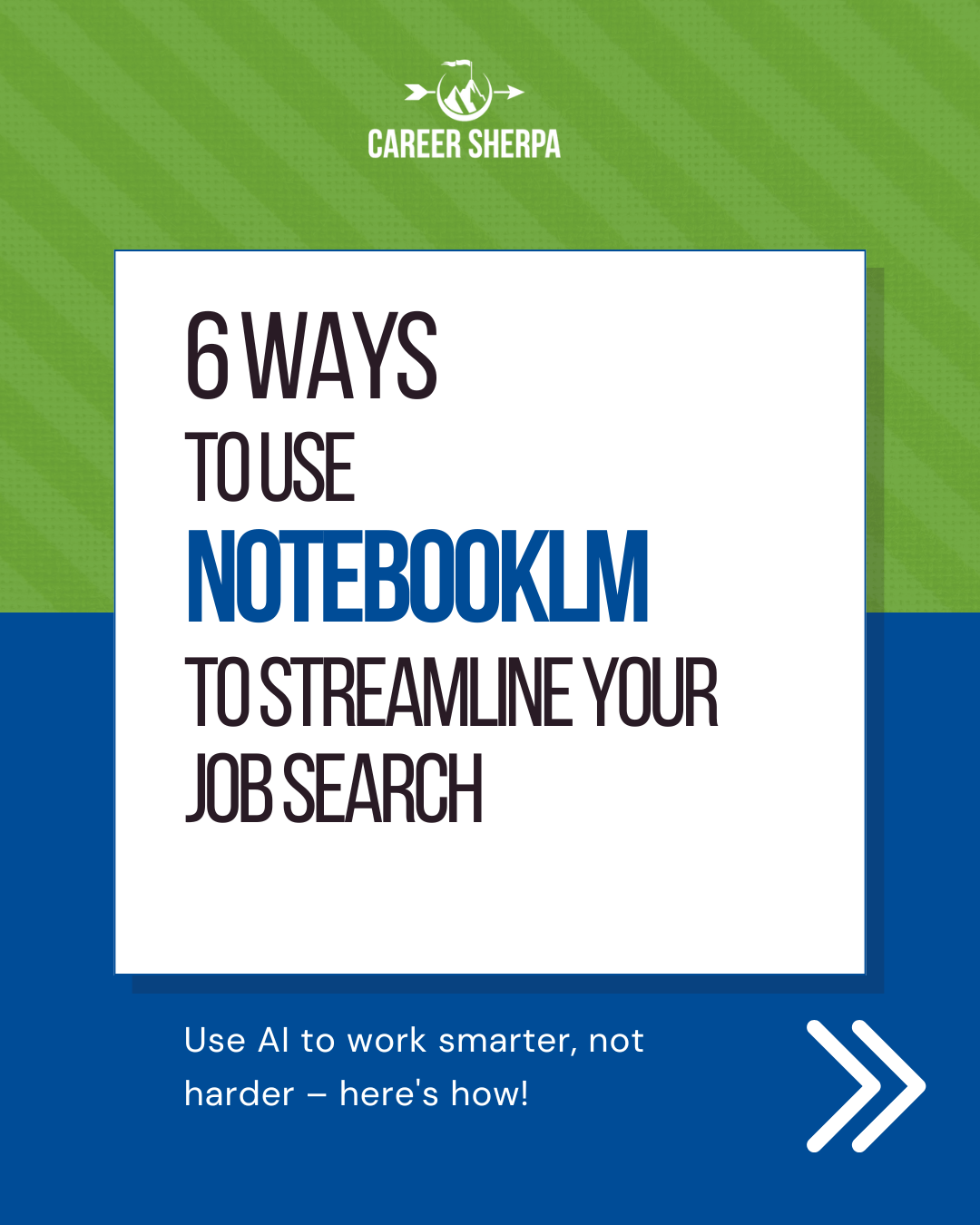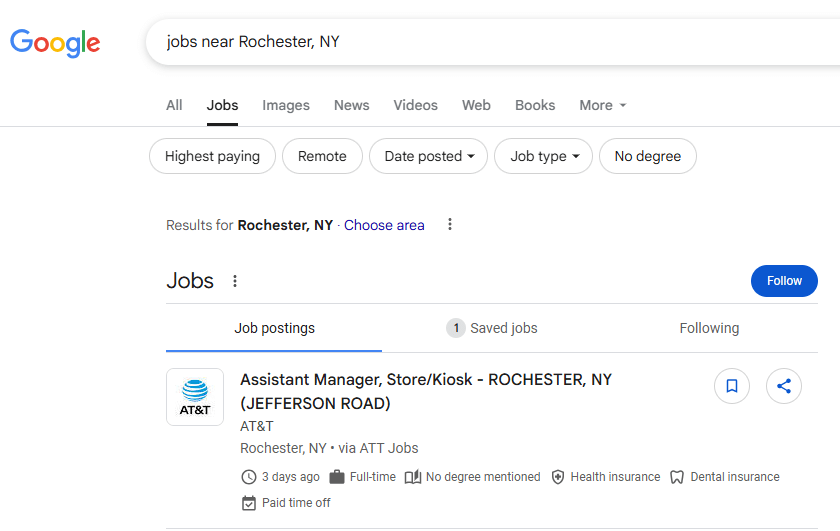Welcome to Career Essentials, where I share actionable insights and curated articles that will help accelerate your career and supercharge your job search.
20 Follow Smart People To Accelerate Your Job Search
As a curator of job search and career content, I regularly reshare insightful/helpful resources. I’ve been doing this for years and have come to rely on certain people for providing great content. Their information is current and non-salesy. In other words, they generally want to help job seekers and this is why I call them Job Search Advocates.
There are thousands of people providing job search content, and it can get noisy on LinkedIn and other social media outlets. There’s no barrier to who can share their tips. And there really is no promise that the tips will work for every job seeker. Like anything, it’s using the right tool for the job (in the right way).
Here is a list of some of my go-to experts for job search insights. I’ve categorized them by their “specialty” or area of focus, but often they address more than just the one topic. All of them are active on LinkedIn. Many have their own newsletters. And many are active on other social media platforms. (Hint: follow and subscribe)
PS: This is only a partial list and I know I’ve overlooked some key experts. But 20 is a lot to follow!
PPS: You can use this link to see what they post every week! Save it as a bookmark in your search engine browser. (Huge timesaver)
JOB SEARCH STRATEGIES
RESUME/LINKEDIN WRITERS
RECRUITERS WITH JOB SEARCH ADVICE
CAREER & WORKFORCE TRENDS

🔎 JOB SEARCH
Can you figure out what to do with me? - Nick Corcodilos, Ask The Headhunter
A job seeker writes to Nick and explains what he’s done for the past 15 years. He goes on to say he is employed but looking for something new. Nick gets tons of emails like this (and so do many other people) and they don’t work. Instead, Nick recommends this exercise to help get clarity and the right wording:
How would you convince a manager — who has no job openings — to create a new job just for you? This is a useful exercise because it requires you to discuss not your credentials, but the employer’s business.
3 cold messages that actually got responses - Adam Broda
Targeted messages that start a conversation are the key. In this post, you’ll find 3 messages that you might consider using when you don’t have any connections or a referral to introduce you.
The "Content Follower" Approach
The “Common Ground” Connection
The “Referral-Ready” Message
48% Accept Cold Outreach Messages - Kelli Hrivnak
This pairs well with the post above. The odds are good that you’ll get a response, but there are many factors like what you ask for, how you ask, and who you ask. The respondents to Kelli’s poll seem willing to have a conversation, it’s up to you to make it easy for them to say yes. Kelli suggests asking people within specific communities designed to facilitate networking.
🤝 NETWORKING
“You just need to network.” But how? - Chris Stambolidis
“Networking isn’t about blasting people. It’s about being specific, strategic, and human.” Chris outlines how to make networking more effective, and no, it isn’t easy. It takes planning and persistence. These are the five steps:
Break your network list into 3 segments (peers, recruiters, hiring managers)
Send the right message (warm, cold, follow-up)
Ask for insights
Prepare for coffee chats
Track your networking efforts
🗨 INTERVIEWING
Your job offer: negotiating isn’t optional - Neil Danzger, The Danzger Group
Salary isn't the only negotiable aspect of a job offer. Equity, bonuses, and work-life balance are also important factors that can greatly influence your career path and should be considered during negotiation. But negotiation is a skill and takes practice. This post will get you thinking about what you may want to negotiate once you have your next offer.
🔮 WORKFORCE
What if there were a way to make it easier to understand what different job skills mean and how they connect to each other? Would this help people get recognized for what they're good at? Would this help people get better jobs, and for companies understand who has what skills? What if someone reinvented the whole process? That’s what is being proposed (and worked on) here.
It’s not the first time these ideas have been proposed and it certainly won’t be the last.
25 Stats for 2025 Graduates - Inside Higher Ed
This stat stuck out:
98% of employers say their organization is struggling to find talent, but nearly 90% say they avoid hiring recent grads—in part, as 60% noted, because they lack real-world experience.
In this list of stats about 2025 graduates, you’ll find data including levels of career preparedness, challenges in the workplace and the value of higher education in reaching career goals.
Workforce 2025 Global Insights Report - Korn Ferry
If you are looking for an overview of the current labor market, this is a great resource. Korn Ferry surveyed more than 15,000 professionals worldwide to understand how they feel about their work. We are in a phase of global workforce uncertainty. Traditional work assumptions are changing as organizations balance growth with employees' desires for fulfillment and work-life balance. These were the major issues:
Hybrid Headaches
Missing Managers
The Salary Squeeze
Generational Angst
A New AI World Order
Plus, the survey takes a look at trends in healthcare, tech, and finance industries.
💗 WELL-BEING
7 Habits to End the Day - Leadership Freak
What surprised me wasn’t the list itself but the fact that these things even needed to be listed. If build a consistent habit of doing these little things, you’ll see a difference.
Unlearning fear! That’s the one thing!
And unlearning fear requires reprogramming your brain. One suggestion is to try asking yourself “What” questions instead of “Why” questions. Another tip is to reframe how you perceive failure. There are some useful tips in her

JOB SEARCH VISUAL
Tired of juggling resumes, job postings, and networking messages across dozens of tabs?
Let me introduce you to NotebookLM – an AI-powered tool by Google that helps you stay organized, customize your documents, and prep for interviews… all in one place.
Here’s how job seekers are using it 👇
1️⃣ Organize by Company – Create a notebook for each target employer to keep job descriptions, research, and notes together.
2️⃣ Upload Key Sources – Add your resume, company research, and job postings to use as a reference.
3️⃣ Tailor with AI – Compare your resume to the job description and generate personalized cover letter content using prompts.
4️⃣ Interview Prep – Use your saved materials to create practice questions for every interview type.
5️⃣ Smarter Networking – Upload LinkedIn profiles to identify common ground and draft custom outreach messages.
6️⃣ Bonus Features – Podcast-style summaries, study guides, briefing docs, and even timelines made from your resume.
🎯 NotebookLM is like having an AI research assistant for your entire job search – and it’s free.

Follow Career Sherpa on Instagram for more posts like this.

DID YOU MISS THESE

WEBSITE OF THE WEEK
Google For Jobs
I think a lot of people forget about this. Google’s search engine is one of the most powerful out there. Why not use it to help you uncover jobs.
Google For Jobs acts as a search engine that crawls and indexes job postings from different websites. When you search for a job on Google, the results page will display a "Jobs" section at the top with relevant job listings.
Benefits for job seekers: It makes it easier to find jobs by consolidating listings from multiple sources in one place. You can filter by location, salary, and other criteria, and even see commute times.
Google says on their Help page:
“After you enter your search terms, you find a short list of up to 3 job results. To display any additional results, tap or click the appropriate button at the bottom of the list.
By default, job results are sorted by relevance. Dozens of factors are considered to determine relevance, including your search terms and various job listing aspects like location and listing date.
Your results may be personalized based on your browsing activity and recent searches on Google. If you’re signed in to your Google Account, personalization may also be based on your previous job searches.”
